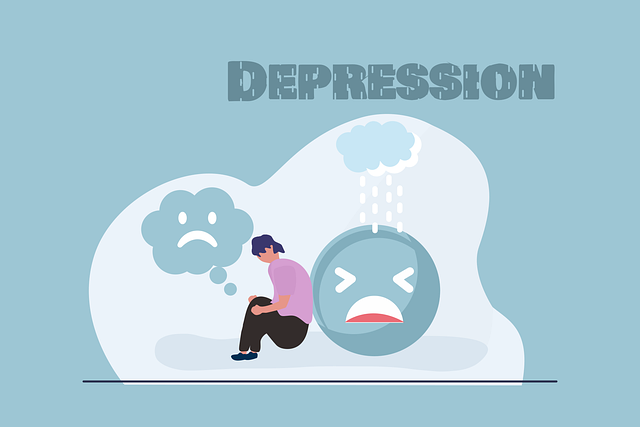For therapy professionals serving adult Hebrew-speaking clients, culturally sensitive risk assessment is crucial. It involves understanding community dynamics and individual needs to tailor therapeutic approaches, addressing linguistic barriers, acculturation stress, and historical traumas. By integrating open communication, journaling exercises, trauma support, and culturally relevant workshops, therapists create a safe space enhancing the therapeutic process for these clients seeking mental health support.
In the realm of mental health, effectively assessing risks is paramount, especially when serving Hebrew-speaking adult clients. This article navigates the crucial topic of risk assessment tailored to this specific demographic, delving into cultural sensitivity and its impact on therapy. We explore potential risks unique to adult Hebrew speakers in therapeutic settings, offering strategies for professionals to manage and mitigate these risks successfully. By understanding these considerations, therapists can enhance their practice and provide optimal care for this diverse population, ensuring a vibrant and secure therapeutic environment.
- Understanding Cultural Sensitivity and Risk Assessment in Hebrew-Speaking Adult Therapy
- Identifying Potential Risks in Mental Health Practice with Adult Hebrew Speakers
- Strategies for Effective Risk Management and Mitigation in Hebrew-Speaking Adult Therapy Settings
Understanding Cultural Sensitivity and Risk Assessment in Hebrew-Speaking Adult Therapy

For Hebrew-speaking adult therapy professionals, understanding cultural sensitivity and its integral role in risk assessment is paramount. This involves recognizing the unique challenges and strengths within the Hebrew-speaking community, ensuring therapeutic approaches are tailored to meet individual needs. Cultural sensitivity in mental healthcare practice encompasses a deep appreciation for cultural nuances, values, and belief systems that can shape an individual’s experience of mental wellness. By integrating this awareness into risk assessment procedures, therapists can create a safe and supportive environment that fosters open communication and encourages clients to explore their inner strength development.
Hebrew-speaking adults may have distinct perspectives on health, illness, and healing due to cultural backgrounds and experiences. Therapists must be adept at interpreting these perspectives, incorporating relevant cultural references into discussions, and adapting assessment tools to accurately reflect the client’s worldview. This nuanced approach not only enhances the effectiveness of therapy but also ensures that risk factors are identified and managed within the context of the client’s cultural identity. Incorporating mental wellness journaling exercises guidance can serve as a valuable tool for promoting self-reflection and deepening understanding of personal strengths and challenges, thereby strengthening the therapeutic alliance.
Identifying Potential Risks in Mental Health Practice with Adult Hebrew Speakers

In the context of mental health practice with adult Hebrew speakers, identifying potential risks is an essential step in ensuring effective therapy for adults who share this linguistic background. Cultural sensitivity plays a pivotal role; understanding the unique challenges and nuances associated with serving this specific population is crucial for professionals. Many Hebrew-speaking adults may have experienced cultural barriers, language disparities, or historical traumas that could significantly impact their mental health journey. For instance, individuals who immigrated to new countries might face stress management issues related to acculturation, while those from diverse ethnic backgrounds within Israel could encounter cultural conflicts or a sense of disconnection.
Professionals providing therapy for adults Hebrew speaking should consider these factors when assessing risks. This may involve integrating Trauma Support Services tailored to address past traumas, offering Stress Management Workshops Organization to cope with modern-day stressors, and encouraging Self-Awareness Exercises that resonate with the client’s cultural context. By doing so, mental health professionals can create a safe and inclusive environment, fostering open communication and enhancing the therapeutic process for Hebrew-speaking adults seeking support.
Strategies for Effective Risk Management and Mitigation in Hebrew-Speaking Adult Therapy Settings

בסביבת טיפול למבוגרים דוברי עברית, ניהול סיכונים יעיל יכול להיות מאתגר אך חיוני. גישה רב-ממדית הכוללת הערכת סיכונים סדירה היא המפתח לשמירה על סביבה בטוחה ומכבדת עבור המטופלים והמטפלים כאחד. ראשית, חשוב ליישם פרוטוקולים ברורים לזיהוי וניהול מצבים של מצוקה נפשית בקרב המטופלים, כולל הכשרה מתאימה לצוות הטיפולי בזיהוי סימני אזהרה של הפרעות נפשיות.
אסטרטגיות נוספות יכולות לכלול שילוב של תרגילי חמלה וגידול חמלה (Compassion Cultivation Practices) בטיפולים, אשר הוכחו כמסייעים במניעת דיכאון ושיפור ההתמודדות עם לחצים. יצירת מרחב בטוח ותומך, המעודד פתיחות ושקיפות, יכול גם הוא לתרום לניהול סיכונים יעיל. בנוסף, שיתוף פעולה הדוק עם מומחים בתחום בריאות הנפש והשתלמויות מתמשכות יעזרו למטפלים לשמור על מיומנויות עדכניות ולהתמודד עם אתגרים מורכבים שעלולים להתעורר בסביבה הרב-תרבותית של דוברי העברית.
Mental health professionals working with adult Hebrew speakers must be vigilant in navigating cultural sensitivities and identifying potential risks. By understanding the unique challenges faced by this population, such as language barriers and cultural norms, therapists can effectively manage and mitigate risks in therapy settings. Implementing tailored strategies that address these issues is crucial for providing safe and culturally competent care within the context of Hebrew-speaking adult therapy. This comprehensive approach ensures that clients receive the best possible support while minimizing potential hazards.














